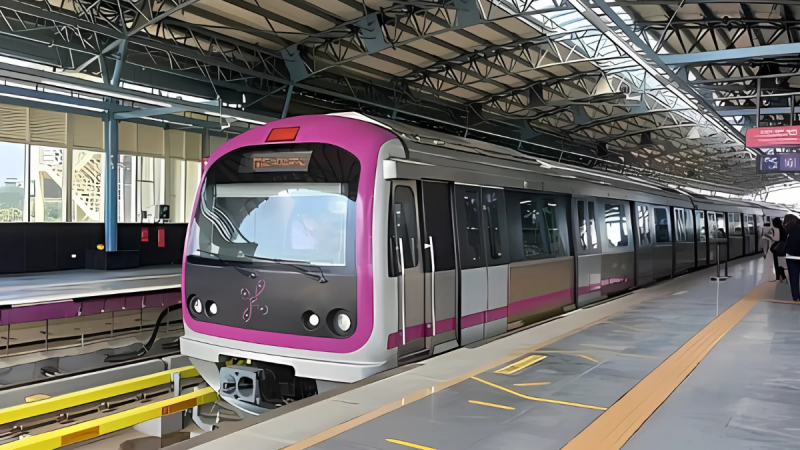Bengaluru’s recent Namma Metro fare hike has brought unintended consequences for small businesses operating within station premises. As the fares rose, passenger numbers began to decline, directly affecting retail activity at several key metro stations. The footfall drop has led to significant sales losses, with many retailers reporting a 40% decline in revenue. The situation has sparked concern among vendors, especially those who depend heavily on metro commuters for daily business.
Retailers Witness Sharp Drop In Revenue
According to The Times of India, Namma Metro saw its daily ridership fall from 8.2 lakh to 7.1 lakh after the fare hike—an approximate 13% dip. For retail shops based at metro stations, this meant fewer customers and plummeting sales. GO DESi, a popular handmade snacks brand, reported a 15–20% drop in sales over two months. Its Nagasandra outlet eventually closed after facing a staggering 40% revenue decline.
Other businesses, including cafes, jewellery kiosks, and food stalls, have echoed similar concerns. The Madras Coffee House, with outlets at Banashankari and Benniganahalli stations, experienced a 30% sales drop. These losses have left many retailers struggling to meet operating costs, including high monthly rents.
High Operational Costs Add To Pressure
While sales continue to dip, monthly rental charges remain unchanged, compounding financial stress for retailers. For vendors at high-traffic stations like MG Road, rent alone accounts for nearly 70% of earnings. With profits shrinking, some are now reconsidering whether it’s sustainable to maintain outlets at metro stations.
Also Read: Bengaluru Metro Chaos: 10-Minute Train Gaps On Monday Morning Spark Commuter Outrage
As reported by The Times of India, several vendors have reached out to the Bangalore Metro Rail Corporation Limited (BMRCL) to highlight their concerns. However, BMRCL views the drop in ridership and retail activity as temporary. Officials suggest businesses should adapt and innovate to survive the changing metro environment.
Commuters Turn To Alternatives Amid Fare Surge
The fare hike increased maximum ticket prices to ₹90, affecting daily travellers such as students, office-goers, and low-income workers. According to TOI, many have turned to buses, shared cabs, and two-wheelers, avoiding the metro altogether. This shift in transport preference has drastically reduced the potential customer base for station vendors, adding to their mounting woes.
With uncertainty looming, metro-based retailers are hoping for either a rollback in fares or policy changes that can support business continuity within Bengaluru’s metro ecosystem.
Cover Image Courtesy: Wikimedia Commons

